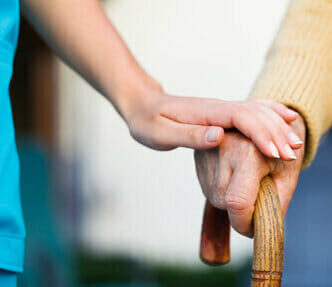
- December 9, 2020
- Steve Heisler
- Senior Injuries
Legionnaires’ Disease is a severe form of bacterial pneumonia; it is much more severe than other bacterial pneumonias out in the community. It’s severe because 98% of the people that get this form of bacterial pneumonia end up hospitalized. Plus, many of them end up on a ventilator. The symptoms of Legionnaires’ Disease are not any different than other forms of bacterial pneumonia: high fever, cough, diarrhea. The symptoms are nonspecific, so it’s a challenge to make the diagnosis. The nonspecific diagnosis is critical to note because if you don’t get on the right antibiotic quickly, you can die from the infection. Twenty percent of people who get it in the community will die. About thirty percent will die from it if they acquire the disease while in the hospital getting treated for something else.
Where The Legionella Bacteria Is Found
The first outbreak in 1976 was from an air conditioning system. On top of large buildings, there are cooling towers. In the cooling towers are warm water and mist comes off the top and gets sucked back through the cooling system. However, this bacteria is not just found in cooling towers; it is found in faucets and showers. You can find Legionella bacteria in water; it’s a waterborne pathogen. You can find the bacteria in decorative water features, hot tubs, warm water systems in large buildings, and hospitals in the community. About fifty percent of large buildings with complex water systems have Legionella bacteria in them.
Ask Your Physician To Test You For Legionnaires’ Disease
If you go to a doctor and think you have pneumonia, ask them to test you for Legionnaires’ Disease. Also, request that they put you on an antibiotic effective in the treatment for Legionella. That antibiotic will cover all of the typical bacterial causes. Be your own advocate. Physicians don’t always think about Legionnaires’ Disease. So, they won’t treat people and do the diagnostic workup. The doctor will send someone home without checking for Legionnaires’ Disease. The person will go home and often get worse. Then, they will need to check into the intensive care unit. Precious time has been lost that could have been used in getting rid of the infection.
Annual Legionnaires’ Disease Cases In The United States
Did you know that Legionnaires’ Disease is often misdiagnosed? Physicians following recommended guidance will miss Legionnaires’ Disease forty-one percent of the time. When Legionnaires’ Disease is diagnosed, it is required to be reported. However, the diagnosis is missed a lot of the time. Only a fraction of cases that occur are reported. So, the estimate is about 30,000 cases per year are happening in the United States. All of these cases can be prevented if we address the presence of Legionella in our water systems.
Why Seniors Are At Risk For Legionnaires’ Disease
Seniors are more likely to get the disease. Lots of us are exposed to Legionella in water, but who actually gets sick? These are some typical factors that will make it more likely for you to get sick: smoking, chronic lung disease, receiving steroids, immunocompromising conditions, and chemotherapy. However, the most common risk factor for getting sick from Legionnaires’ Disease is advanced age. The CDC says anyone older than fifty is at greater risk. The risk gets more significant as you get older. There’s nothing we can do about getting older, so we all need to be extra careful if we get pneumonia.
When Seniors Should Worry About Legionnaires’ Disease
Seniors should be enjoying a wonderful retirement. Part of retirement involves travel. Hotels are a hotbed for Legionella bacteria. Because of their advanced age, seniors can go on to develop Legionnaires’ Disease. It’s essential to be cautious of their warm water system, showers, faucets, decorative water features, and the hot tub in a hotel. Seniors should also worry about hospitals and their homes. The simple answer is that there is a greater risk as a senior. The answer is to be vigilant when you get sick and always ask your physician to test you for Legionnaires’ Disease. Remember, treatment is effective if started early.
If you want to stay up to date with what is affecting our senior population, follow The National Injured Senior Law Center on Facebook.